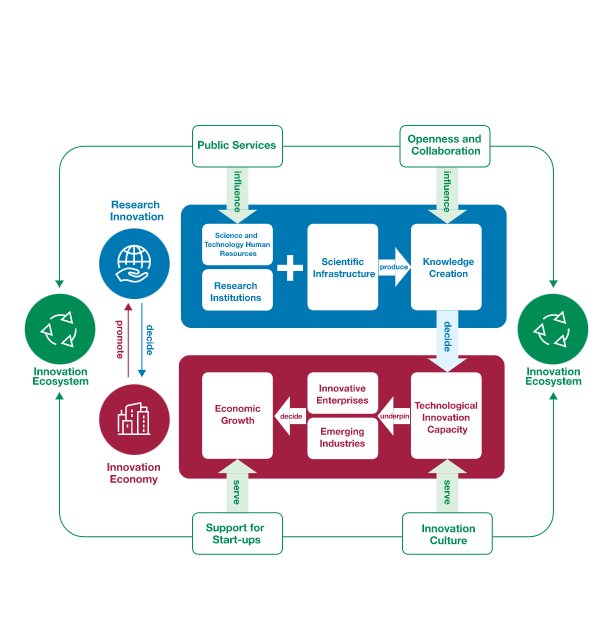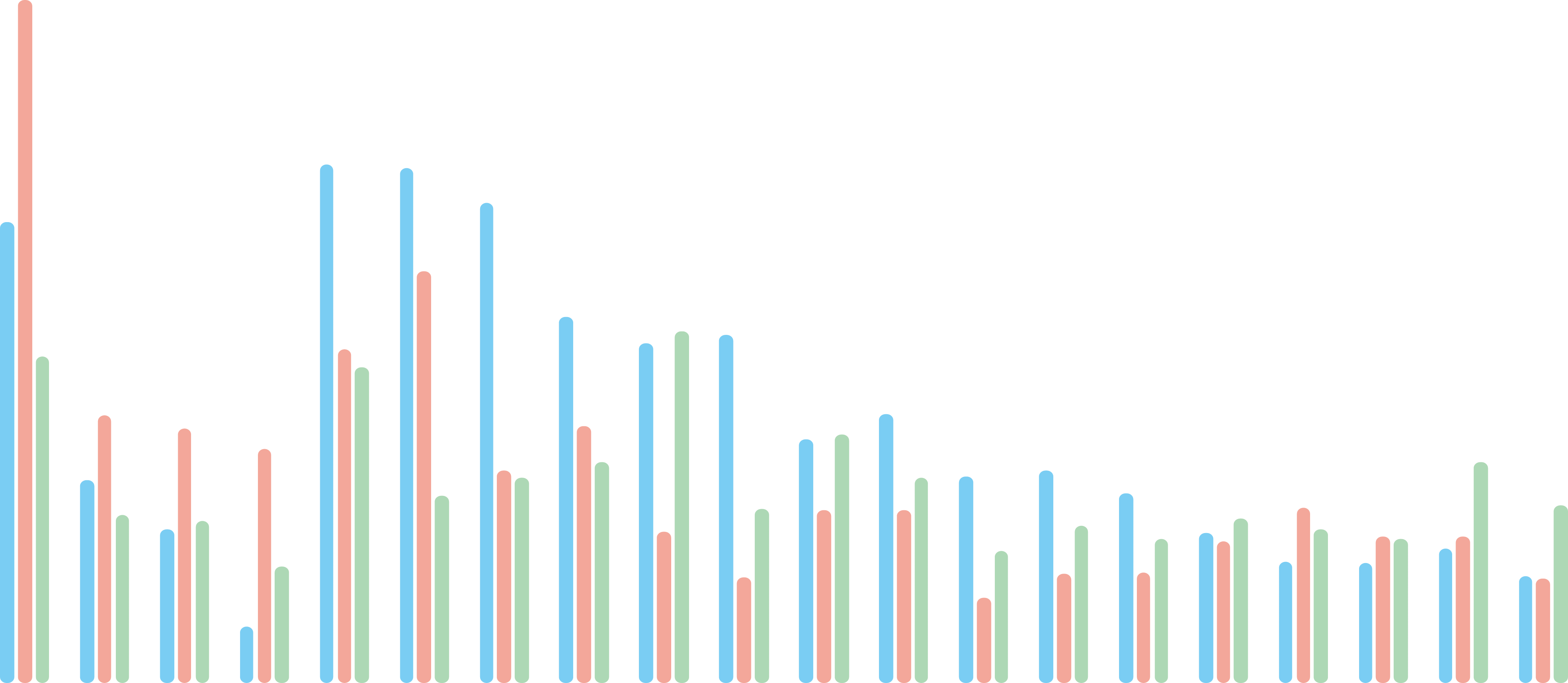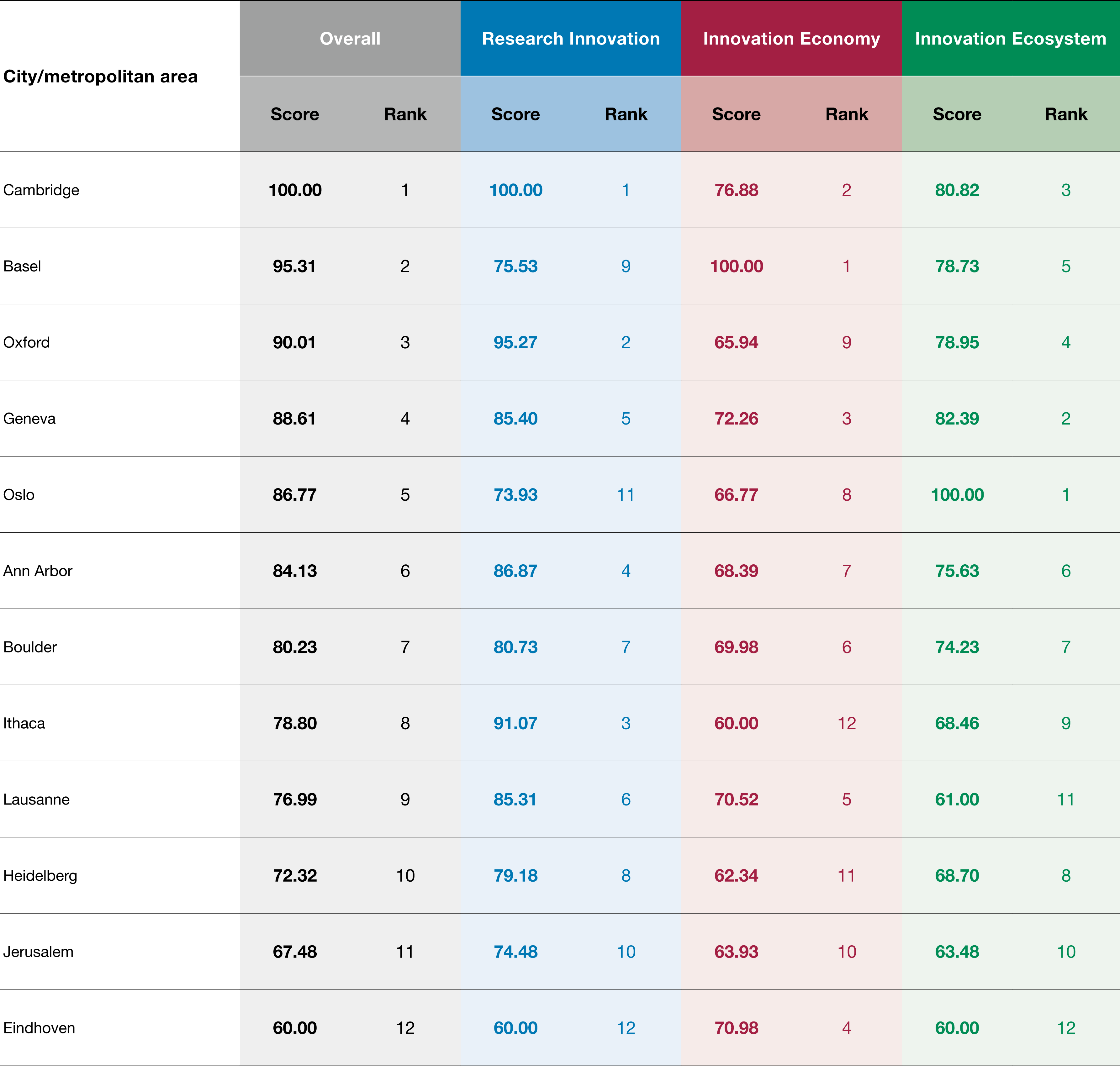
The Global Innovation Hubs Index (GIHI) developed by the Center for Industrial Development and Environmental Governance (CIDEG) at Tsinghua University, with data services and translation support from Nature Research Intelligence, has been tracking and analysing year-on-year changes and the latest trends in global innovation since 2020.
GIHI2024 continues to apply scientific, objective, independent and impartial principles to evaluate global innovation hubs (GIHs) using three indicators — research innovation, innovation economy and innovation ecosystem — providing a reference for policymakers, entrepreneurs and practitioners.

A conceptual model for GIH assessment
Overall ranking of the top 100 Global Innovation Hubs (GIHs)

The development patterns of the top 20 GIHs

San Francisco-San Jose has been named the top ranked GIH for the fifth consecutive year, scoring much higher than other GIHs;
New York MA ranks second again with a score of 91.88; Beijing comes in third place with a score of 89.28; Boston MA and London MA
rank fourth and fifth, respectively and have swapped position since 2023.
Other cities/metropolitan areas in the top 20 are Guangdong-Hong Kong-Macao Greater Bay Area, Shanghai, Paris MA, Tokyo MA, Baltimore-Washington,
Seoul MA, Singapore, Los Angeles-Long Beach-Anaheim, Munich, Seattle-Tacoma-Bellevue, ChicagoNaperville-Elgin, Chapel Hill-Durham-Raleigh,
San Diego MA, Amsterdam MA and Dublin. Comparing the top 20 GIHs between 2022 and 2024 (Table 3), San Francisco-San Jose, New York MA and
Beijing continue to lead, demonstrating their strong innovation capabilities.
In GIHI2024, we continue to evaluate minihubs separately to larger cities/metropolitan areas as the GIHI indicator system assesses the innovation of cities primarily on scale indicators. Mini-hubs feature small populations (less than one million) but strong innovation, which makes them significantly different from most of the other cities in this report and therefore unsuitable for inclusion in the overall ranking. A total of 12 mini-hubs are included in the GIHI, with Oslo a new addition in 2024. All mini-hubs except for Jerusalem are in Europe and the United States. Specifically, they are in the United States, Switzerland, Germany, the Netherlands, the United Kingdom and Norway.




As the global economy faces a mix of challenges and opportunities, GIHI is set to play a more important role in supporting economic recovery, promoting human wellbeing and addressing global challenges. Uncertainties are driving an adjustment to globalization and bringing challenges such as geopolitical tensions, supply chain restructuring, climate crisis and energy transition. The rise of emerging technologies is providing strong support for economic recovery and transformation, especially advancement in AI, quantum computing and green technology. Global economic growth will depend on technological innovation, digital transformation and international cooperation. GIHI will play a vital role in ensuring the vitality of the global economy by spearheading technological breakthroughs, strengthening supply chains and participating in global governance and cooperation. The global innovation network is dynamic and evolving and the index system needs to be further improved. We invite evaluators, practitioners and policymakers across the world who have read this report to make comments and suggestions so that this can be achieved.
Download GIHI2024